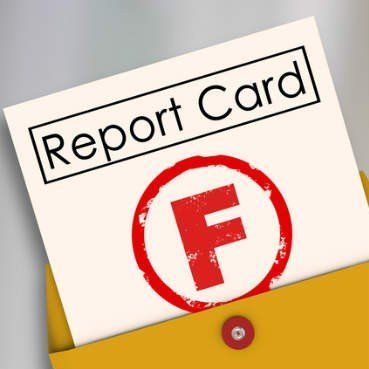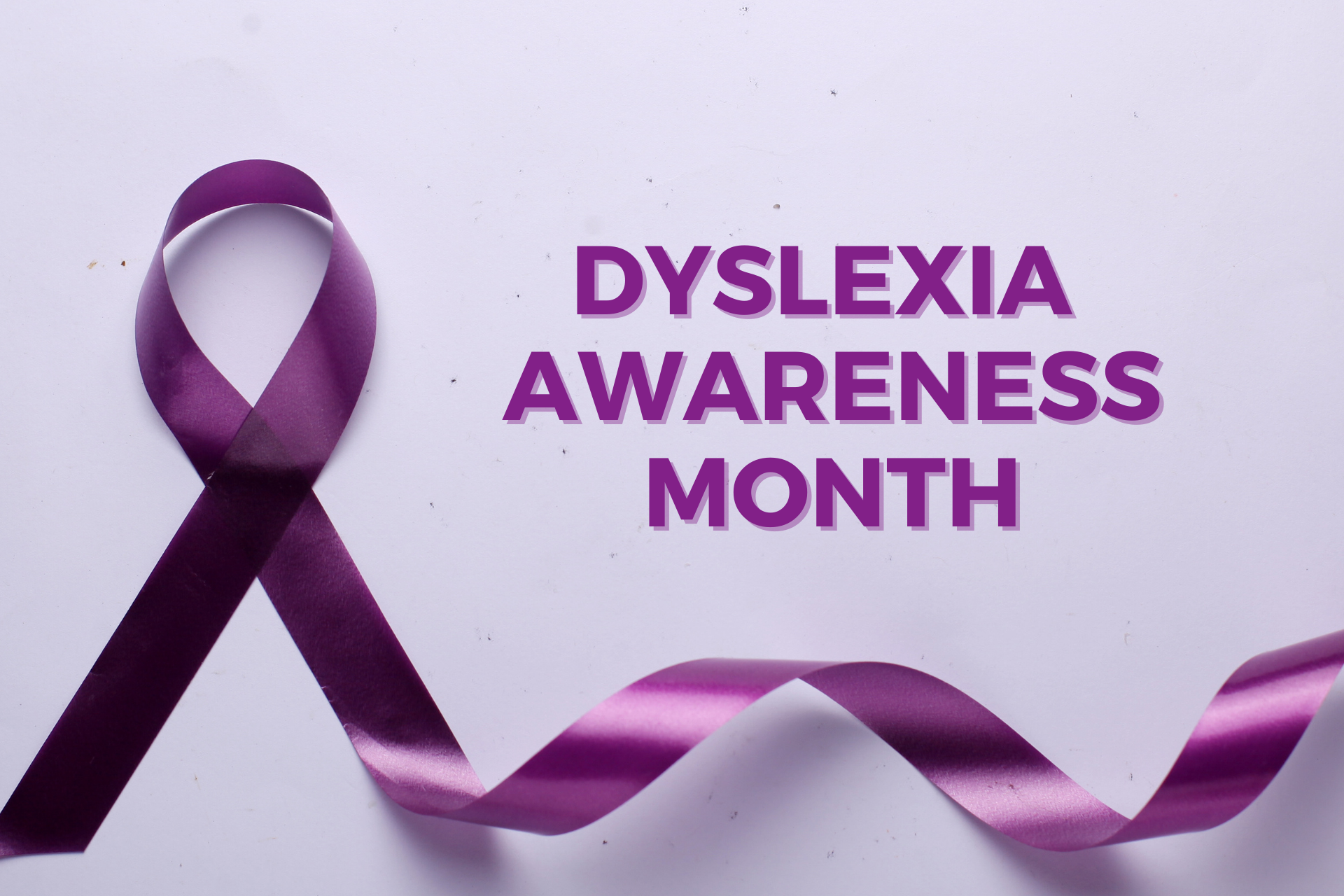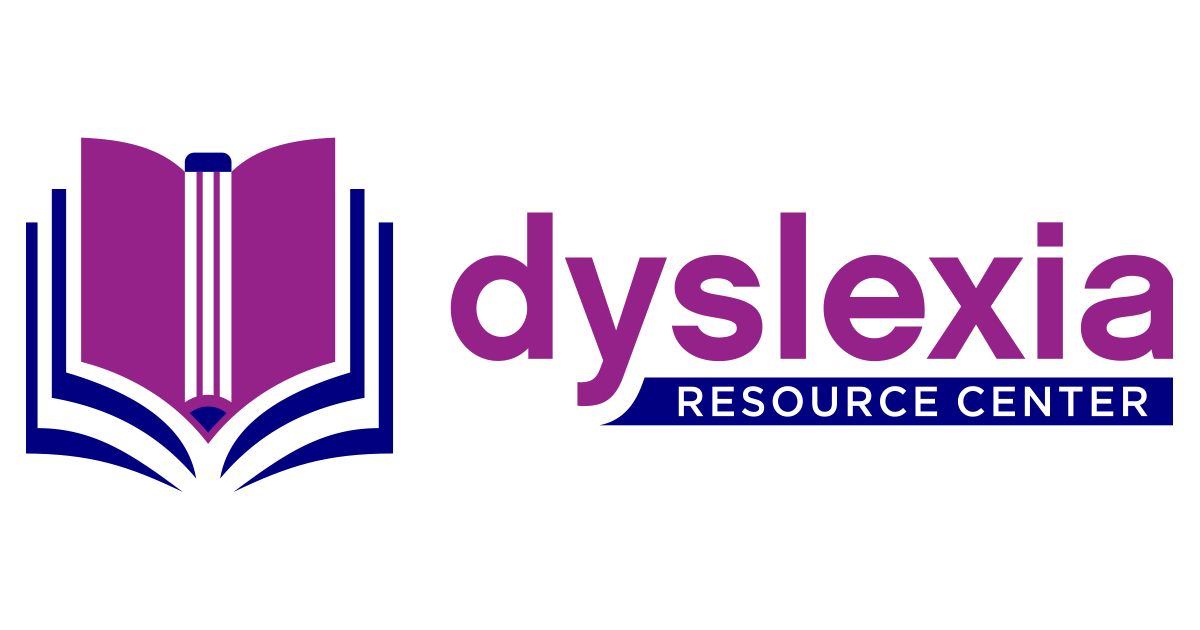DRC BLOG

Empowering Your Dyslexic Child: A Guide to Effective Advocacy Do you suspect that your child may be struggling with dyslexia? As a parent, advocating for your dyslexic child is crucial to ensuring they receive the support and resources they need to thrive in school and beyond. Understanding the challenges your child faces and knowing how to navigate the educational system can make a significant difference in their academic journey.

Empowering Struggling Readers: A Call to Action for Educators and Volunteers If you volunteer or work in a school setting and encounter students who are struggling with reading, you possess a unique opportunity to make a meaningful difference in their lives. It's essential to ask critical questions and explore personalized interventions for those who need extra support in reading. By tailoring instruction to address their specific needs, you can help struggling readers build confidence, improve their skills, and unlock a world of knowledge and possibilities. Whether it's through one-on-one tutoring, guided reading sessions, or targeted interventions, your commitment and dedication can truly transform the trajectory of these students' lives.

The Complexity of Reading Acquisition: Understanding Dyslexia Beyond Assumptions Reading is often seen as a natural skill that develops effortlessly with exposure to text. However, this assumption overlooks the complexities of reading acquisition, especially for individuals with dyslexia. Contrary to popular belief, exposure to higher-level text does not automatically improve reading skills, particularly for those struggling with dyslexia. The Overlooked Findings of the National Reading Panel: A Debate on Reading Instruction The National Reading Panel's landmark report in 2000 outlined the fundamental principles of effective reading instruction. Unfortunately, these findings have often been overlooked, leading to ongoing debates between proponents of phonics instruction and advocates of whole language or balanced literacy approaches. Dyslexia: More Than Just Reading Difficulty To truly understand dyslexia, it is crucial to recognize that it extends beyond mere difficulty in reading. Dyslexia affects how individuals process language, making it challenging to break down words into their constituent sounds and match them to written symbols. This process, known as decoding, is essential for fluent reading and comprehension. Early intervention is key in addressing dyslexia. In kindergarten, children lay the groundwork for reading through activities that develop phonemic awareness, letter recognition, and early literacy skills. By screening for dyslexia risk factors by the end of kindergarten, we can ensure early identification and intervention for those in need. Identifying and addressing foundational reading skills is essential to prevent dyslexic students from falling behind their peers. Dyslexic students require specialized instruction that caters to their unique learning needs. This includes explicit instruction in phonemic awareness, decoding strategies, and vocabulary development. According to the National Reading Panel, 90 minute sessions of targeted instruction are recommended, ideally in small groups of six or fewer students. This allows for maximum individualized support and engagement.

Navigating Dyslexia: Understanding Diagnosis and Pathways to Support If you suspect that your child may have dyslexia, it's natural to have questions about the diagnosis process. While functional MRI scans provide insights into the neurosignature of dyslexia, they are not used for diagnosis. Instead, clinical assessment is the typical approach, involving a thorough history and evaluation of various signs, symptoms, and tests. When considering dyslexia, medical professionals often look for specific indicators in a child's developmental history. These may include speech delays, difficulties learning and recalling the alphabet, and a lack of interest or proficiency in rhyming. Additionally, challenges with word retrieval, especially in social settings or under pressure, may be observed.

Unlocking the Power of Dyslexic Minds: A Comprehensive Guide In the realm of education, dyslexia stands as a formidable challenge for many students. Defined by the U.S. Federal law, the First Step Act, dyslexia is described as an "unexpected difficulty in reading for individuals who possess the intelligence to be much better readers." This difficulty often stems from a struggle with phonological processing, the ability to discern individual sounds within spoken language, which consequently affects one's capacity to speak, read, and spell. The Paradox of Dyslexia The paradox of dyslexia lies in its unexpected nature. Contrary to common misconceptions, individuals with dyslexia are often bright and intellectually capable. However, they may face hurdles in breaking down spoken words into smaller units known as phonemes. As a result, they encounter challenges in both spoken and written language. Reading becomes a difficult task, requiring significant effort to decode and recognize words. Despite these challenges, dyslexia does not diminish one's reasoning abilities, creativity, or problem-solving skills.

Dyslexia affects individuals' ability to read, write, and spell. Dyslexia is characterized as a difficulty in phonological processing, making it challenging for people with dyslexia to connect sounds to letters and letter groups. In this blog post, we will explore four key facts about dyslexia that everyone should be aware of.

Is your child or student struggling with reading? Are you looking for effective methods to support their reading development? One approach that has shown promising results for children with dyslexia is reading aloud. In this blog post, we will explore the importance of nurturing reading fluency in children with dyslexia and provide practical tips to help them become proficient readers. Understanding the Challenges Children with dyslexia face unique challenges when it comes to reading. They often struggle with decoding words accurately, which can hinder their overall comprehension. It's important to recognize that their difficulties lie not in higher-level thinking but in the decoding process itself. Dyslexic learners employ an inefficient system in the brain, making it necessary for them to exert extra effort to break down words into smaller parts. The Role of Fluency Fluency acts as a bridge between accuracy and comprehension in reading. Dr. Sally Shaywitz, a renowned expert in dyslexia research, emphasizes the significance of fluency for dyslexic learners. Fluent readers not only read accurately but also do so swiftly and with proper intonation. By developing fluency, children with dyslexia can enhance their overall reading abilities and better understand the written word. Strategies for Nurturing Reading Fluency Choose Age-Appropriate Books : Selecting books aligned with a child's interests is key to engaging their attention during reading sessions. This helps maintain motivation and enjoyment while building fluency. Private Reading Sessions: Create a comfortable and private setting where the child can read aloud without distractions or self-consciousness. This allows them to focus on their reading without feeling judged or pressured.

Parenting a dyslexic child comes with unique challenges, but knowledge is power! Dive into our guide exploring the importance of early intervention, the nuances of dyslexia, and practical ways to nurture strengths while addressing challenges. Understand dyslexia beyond reading difficulties, embrace the Sea of Strengths concept, and discover the power of early identification. Learn how ongoing support and empowerment strategies can shape a confident educational journey.

Delve into the fascinating world of dyslexia as we explore the science behind it, guided by advancements in neuroimaging technology like functional MRI (fMRI). Uncover the dynamic activity within the dyslexic brain and understand how differences in neural pathways, particularly in the phonological module and eye-to-brain connectivity, contribute to reading challenges. Discover the power of early identification and targeted intervention, empowering dyslexic children to thrive academically.

Supporting your child with dyslexia in the classroom is an absolute must. We believe every child, including those with dyslexia, deserves a fair shot at academic success. The good news? With some fantastic strategies up our sleeves, we can help your child shine, even in the face of dyslexia's challenges. Check out these seven dynamite strategies for parents like you, who want to supercharge your dyslexic child's classroom experience! We think you should be aware of the following to help the one in five with dyslexia.

Supporting your child with dyslexia in the classroom is an absolute must. We believe every child, including those with dyslexia, deserves a fair shot at academic success. The good news? With some fantastic strategies up our sleeves, we can help your child shine, even in the face of dyslexia's challenges. Check out these seven dynamite strategies for parents like you, who want to supercharge your dyslexic child's classroom experience! We think you should be aware of the following to help the one in five with dyslexia.

If your child is not meeting age or grade level milestones it is best to consult your pediatrician and/or someone at the school. Many times a parent will be told to “wait” or “don’t worry, he’s a boy” but this may be the wrong advice. Children that are behind in language skills at two or beyond should be seen by the pediatrician. If your child is f our or five and cannot remember the alphabet or numbers or has difficulty with speaking words correctly, you should seek guidance. If a child is six or seven and has the above and/or is struggling in school , you should talk to the teacher. If the pediatrician or you decide to talk to the school, start with the teacher first. Ask the teacher how your student is functioning in the class relative to peers. You want the teacher’s honest assessment and if your child is struggling academically or working much harder than the other children to stay on task, your child needs to be evaluated by your pediatrician or by someone at the school. Public schools use a system called RTI- Response to Intervention which pulls children that are struggling (usually in reading and often dyslexic) out of the classroom for a limited number of weeks. If your child is in RTI, you want to know what testing or evidence led to this decision. You need more information and not assurance that six or eight weeks fixed everything. Have your child read aloud and if it is difficult, slow, or with little emotion, your child needs to be evaluated for dyslexia. Children with dyslexia are eligible for a 504 plan (accommodations) or an IEP (Individual Education Plan) if the dyslexia is moderate to severe. 504 plans will not guarantee (not a legal document) any educational programs, but for a dyslexic child it can include time and a half and text to speech. This will not teach your child how to read but is necessary for any dyslexic as they are smart but “read slowly and with much effort”. An IEP is a legal document and proscribes the “guaranteed” education for a child with “special needs” such as dyslexia. This is offered at Louisiana Key Academy because we have trained teachers and the specific curriculum for children with dyslexia. Most schools, public or private, do not have this. The law is on your side even if the school resists your efforts to identify why your child is struggling and get the necessary education for success.

Have you taught bright students who struggle to learn to read? The reason these students struggle is because they have an unexpected difficulty with reading called dyslexia. We often come across students in our classrooms and try every strategy we know to help these students find success. Have you ever wondered what more you could do to support these students? You can learn how to spot these difficulties in the classroom right away so that the child can be identified, and how to provide appropriate instructional practices to best meet the needs of the dyslexic child. For the dyslexic student having a teacher with these skills is life changing.

Tutoring a dyslexic child First and Foremost- You want someone who understands dyslexia and understands a child’s strengths and their weaknesses. Teaching them to read and write can be hard so a tutor must let them show off their strengths. It might be a sport, art, music, or loving their pet. Reaffirm constantly. Be patient. A child must learn they need to pull words apart and connect the written text with the sounds of spoken language. The tutor should understand that dyslexic children can have difficulty with word retrieval, especially if anxious. Your child needs more than an Orton- Gillingham lesson/tutor. These lessons are good but these alone will not suffice. Your child needs to read books that are of interest and that are grade appropriate out loud with the tutor. Gentle correction from a trusted tutor is important. The tutor should encourage the student to talk about the story after a few pages or a chapter, discuss the vocabulary, and relate it to the child’s interests. Maybe they can write about the story together. Let the child dream about the story and hopefully understand the treasure of reading a book. The tutor needs to understand that dyslexics often have difficulty in math. Math has language too. It is not a separate process. Spelling is difficult for dyslexics but reading out loud will help. Tutors should not give spelling tests or spend precious time on spelling. The tutor needs to see your child several times a week for an hour or ninety minutes. Good tutors know dyslexics often have ADD/ADHD and can tutor a child that wiggles or wonders. A good tutor loves and laughs and understands the tremendous potential of your dyslexic child.

Do you have a bright child who is struggling to learn to read and feel like you need a tutor? Learning to read is the foundation for success in school and if your child is struggling or behind grade level in reading, time is of the essence. Most bright children who are struggling with reading are dyslexic whether they are identified or not. So, what should you look for in a tutor? There are many gimmicks available so it is important to understand reading in a general sense. Reading starts with identification of the letters of the alphabet and linking the sounds of the alphabet with the written symbols. Children then learn to take simple words apart and break them into phonemes and then reassemble them to read the word. CAT has three sounds. C….A….T…. If you are not dyslexic this occurs fairly automatically. As you are introduced to simple words and build upon this letter sound system the non-dyslexic acknowledges that words can be pulled apart to match the sounds of the spoken word. For dyslexic children this is difficult. If your child is struggling to read it is important to know if they can pull the word apart as above (C…A…T….) which is called decoding and/or if they are reading by sight words. Reading involves both decoding and memorized sight words. The ability to do both results in a better reader. It is important to know if the child can decode. Children can read simple material if they have memorized words but as text becomes more complex they will reach a roadblock. The approach of the tutor, the skills addressed, and how and what progress is monitored is important. Reading as a skill set takes off in non-dyslexic children in first and second grade so if your child is behind, time and money must be used wisely. I would recommend a Certified Academic Language Therapist(CALT) or Practitioner(CALP) as my first choice. Or someone who has almost completed this training. ALTA (Academic Language Therapy Association) has a web site and can help you find a CALT in your area. There are plenty of reading tutors with no formal training and those with a few days of training. Personally, I would want a tutor who has trained and worked extensively with dyslexic children – bright children who struggle with reading. If your child is struggling with reading they are most likely also struggling with spelling and writing. A good tutor understands this and has a comprehensive knowledge of dyslexia and will love your frustrated child. The tutor needs to work with your child’s school and your child’s teacher so that the child is progressing toward reading fluency using decoding skills and oral text reading. Your child should not be overwhelmed by two systems of language, one with a tutor and one with a school. If you need a tutor to help your child learn to read, please contact us at 225 384 5484.

Screening in kindergarten and first grade are talked about in educational circles but there are conflicting ideas about screening. Universal screening involves screening all children in a certain age group for a common condition. Screening does not make a diagnosis as the intent is to identify students at risk and then test that group to confirm those who have the entity. In dyslexia, the intent is to identify and then provide dyslexic children with the needed evidence based instruction. It is not to place a child in RTI. The education community is against universal screening for dyslexia. In fact, they are against screening specifically for dyslexia and instead screen for “struggling readers”. Those that are identified by the screener (which is usually based on a test assessing one component of reading and not a screener) are then placed in RTI and labeled only as a “struggling reader”. This is similar to cut offs used in assessing children for dyslexia in schools as opposed to using a preponderance of data. Dyslexia is more than a score on a reading test. Reflecting on the core sound-based phonological deficit, a range of downstream effects are observed in the dyslexic child. This includes writing, speaking, reading, and math. It does not look the same in every child and is dependent on previous instruction and the severity of dyslexia. The intent of the screener should be to identify all children with dyslexia. Why identify those dyslexics that are not struggling? One, how can you assess all children that are struggling? Dyslexic children may have decent grades or test scores because their parents or paid professionals have tutored them. Secondly, dyslexics use a slower, inefficient system to read and therefore benefit from extra time on tests once identified. Thirdly, these bright kids know they are different from their peers so knowing that they are bright but dyslexic is a boost to their self esteem. The education establishment doesn’t want to screen specifically for dyslexia because they don’t see a benefit. Most policy experts in education believe that identification is not necessary for success but that the problem is the teacher or the curriculum. They believe that despite the study from Yale Medical School published in the Journal of Pediatrics showing that the academic gap between dyslexics and non-dyslexics is present in the 1st grade. They believe that despite national data (NAEP) showing 50% of Hispanics and African Americans read below Basic along with 30% of Caucasians. These are randomly chosen children and the test cannot be read to the child. The test in reading is assessing a child’s ability to decode. There is no reason to continue this policy. Universal screening with a valid screener by the child’s teacher should be carried out in the spring of kindergarten. This screener should evaluate all the downstream affects mentioned above in order to identify and give dyslexics the success in life for them individually and for us as a society.

Standardized testing in 3rd grade and beyond has become the accepted evaluation of student learning and teacher effectiveness. It is said that standardized testing is necessary to prepare children to take the ACT as a junior in high school. Does a standardized test in the 3rd grade and beyond predict college entrance and graduation for dyslexic students? Dyslexic students struggle on standardized tests. They are multiple choice tests. They are long tests. They have lots of words that the student has to work to decode- read accurately. If you have to work hard to figure out what the word is, you have less energy to then decide what the word(s) mean. The standardized test measures the dyslexic child's weakness and not their strength. It does not reveal their intelligence, their persistence, or their knowledge. It can lead to the child and teacher feeling defeated. In a school for dyslexic students, such as Louisiana Key Academy, the teachers understand dyslexia and realize the standardized test does not measure their effectiveness or the children's potential to get into college. If a dyslexic child is not reading on grade level, which would be most dyslexic children, the teacher should work on teaching the child to read and write on grade level (for all subjects) rather than teach to a test that does not measure their knowledge but measures their disability. Accountability is a great idea but to be fair to schools like LKA, accountability has to be valid. Most dyslexic students are sitting in schools and are not identified as such. They make up about twenty percent of the students but at LKA they are 100% of the students. The failing scores of dyslexics at other schools are diluted by nondyslexic students. Not so at LKA.

If you volunteer or work at a school and encounter a struggling reader, you have a unique opportunity. Please ask critical questions about students that need “extra help” for reading, that fail reading, or that attend “reading camp”. If you read to the child, try having the child read to you. Not just sight words, but have them read text that is new to them-a book that they have never seen before. Memorization is part of reading but it is not the entirety. Does the child know the alphabet? Can the child match sounds to the alphabet? Can a child read made up words or words other than assigned sight words? Personalizing this endeavor could lead to real change. A child or an adult that cannot read will feel inferior and have poor self esteem. If a child or adult has not been identified as dyslexic and struggles to read, they will think that they or stupid or lazy. How else to explain it? Policy makers may blame bad teachers or lack of vocabulary at home but that does not explain dyslexia and does not help a dyslexic student. The consequences of our refusal to accept current science about dyslexia are real people that sit in classrooms and feel stupid (they are called stupid by their young peers), that drop out of school, or that end up in prison. We know these people. They are real people and they are young and old and the consequences affect their lives and our society. Knowing that you are dyslexic does not solve all the problems but it does help people understand why they are struggling to read and that it has nothing to do with their intelligence. It enables children and adults to then ask the next question. And the next. How can I learn to read? Who can teach me? And it helps them understand their struggles with spelling, writing, feeling rushed on tests, and failing tests even though they know the material. I applaud those that volunteer or work at schools but we need you to go to the next level. Showing up at schools or prisons to work or volunteer is important but using your time and talents wisely is more important. The NAEP 2017 reading scores in the 4th grade show little improvement or loss from prior years. 50% of African Americans and Hispanics along with 30% of Caucasians read below basic. Our policies are not working and real lives are impacted. Blaming teachers may be easy but it is a false narrative. The teachers don’t get to chose the curriculum or the number of children in their class. We need teachers, administrators, and volunteers to understand dyslexia and institute changes for dyslexics.

Louisiana Key Academy finishes its fifth year in May! LKA serves 330 children with dyslexia in 1st through 6th grade and will add 7th grade in August. A celebration is in order but reflection on the past and plans for the future is also necessary. LKA is set up as a “best practice” model so that it can be replicated to help children with dyslexia, no matter their location or parental income. The Dyslexia Resource Center was established in October, 2016 to help and encourage others to replicate LKA. “Best practice” is a term used in medicine and implies that LKA has used the most current evidence and represents the highest standard. The most current evidence about dyslexia is difficult to convey as the evidence is scientific and not educational theory. The evidence may be difficult to understand but it is evidence that has been duplicated and published in peer review journals. If evidence is found to refute what we currently profess, we will admit that and change our actions to mirror new evidence. As an example- I removed parts of a person’s stomach for peptic ulcer disease when the current science held that the parietal cells in the stomach were responsible for stomach ulcers. When new evidence showed that it was bacteria that caused ulcers, I and others, never again removed stomach tissue but instead treated the ulcer with Peptol Bismol or an equivalent. Obviously, removal of stomach with the new evidence would be malpractice. Does malpractice exist in education? The NAEP scores were released this week and again show unacceptable reading levels for many of our children. Many of those children are dyslexic and are not identified and will never read near grade level. Unfortunately, misinformation about dyslexia is published in throw away journals as “theory” not evidence, which leads to confusion. LKA and the DRC will continue to advocate for the proven yet complicated evidence and we will try to present it in an understandable way for parents and educators. “..speaking is natural for the human brain, reading is artificial. Our brains have only been doing it around 5,000 years. Decoding visual images into sounds takes time to learn. While 80% of the population does this automatically, dyslexics do it manually, in part because they rely on a less-efficient part of the brain” (Dr. Sally Shaywitz, Houston Chronicle, April, 2018). The dyslexic has to learn that print must be broken down into the smallest parts of the spoken word, the phoneme. The alphabet and print have sound to it! It is not a visual or hearing problem. Reading, writing, spelling and speaking all involve the connection of print to speech or speech to print/reading. Dyslexia can be difficult to understand but it is imperative that we get the real truth out so time or money is not wasted and dyslexic children are identified and reach their full potential. Please reach out and let us help your child or school.

The charter school movement was a reaction to “failing schools”. Policy makers realized that all children did not have equal opportunities often depending on their zip code. Many children were not graduating from high school and others simply were not “career ready”. Charter schools and school choice were to be sledge hammers to the education system but the vast bureaucracy still stands despite ESSA sending power “back” to the states. It maybe that the states need time as they are used to DC dictating policy or maybe the bureaucracy behemoth needs a bigger blast. Jeb Bush and Ann Duplessis point out in the article, Only a Revolution in Educational Opportunity, will Fulfill Martin Luther King Jr.’s Dream of Justice and Equality, all is not perfect. They state that “Just 37% of today’s students will leave high school ready for college coursework or a good job. And nearly half of our African American and Hispanic fourth-graders are not even reading at a basic level.” I believe that the fundamentals of both traditional and charter schools should be questioned in response to the NAEP scores. Again, 50% of Hispanic and African American children cannot read at Basic on the NAEP (Nation’s Report Card) in the 4th grade. The NAEP is given to 4th, 8th and 12th graders that are randomly chosen. They are tested in reading and math as well as other subjects as a “sampling procedure” to assess children across the U.S. The yearly accountability system on the other hand has its focus on standardized tests developed for fluent readers and are given yearly in 3rd through 8th grade and then at different times in high school. The current system, depending on what side you are on, blames the teachers or lack of money for children not reading on a basic level and some put more validity in the standardized tests over the NAEP. The metrics of accountability/standardized tests must be accurate measurements of performance. Can one test be an accurate measure of accountability? The underlying supposition is that if student scores on standardized tests do not progress, incentives or disincentives will encourage educators to improve teaching or the school will change how they educate their children. There is no science that says the classroom is a homogeneous group of learners that would guarantee excellent teaching leads to results that can be replicated across the board. I believe that many of those children that read below basic are dyslexic. fMRI’s show us that dyslexics, who are 20 % of the population, read using an inefficient part of the brain presenting as an unexpected reading difficulty. Smart children, slow readers. We also know that the achievement gap between those with dyslexia and nondyslexics is there in the 1st grade but the NAEP doesn’t start until the 4th grade and the standardized tests in 3rd grade. Dyslexics, if identified, can get 504 accommodations for standardized testing which includes that the test is “read aloud” to them. For a dyslexic child, the “read aloud” on a standardized test does not assess reading instruction which is so crucial for a dyslexic child. The NAEP does not allow “read aloud” for the reading test except for the instructions. Should we hold schools accountable for teaching dyslexic children to read or to pass a standardized test that is read to them? And if reading is not important, is only acquired oral information important? Does this acquired information hold more promise for a dyslexic than the ability to read connected text? Will a child that cannot read have the confidence, self esteem, and skills to graduate from high school, college, and get a job? The bureaucracy of education has made change slow. Universal screening for dyslexia in K and 1st grade so children can be identified as dyslexic (80 to 90 % of learning disabilities) is the first step. Inclusion for inclusion’s sake is wrong. Children with dyslexia should get the instruction they need and not be held hostage in a class with non-dyslexics that are already reading.

Self esteem is a confidence and a belief in, one’s own value. Children spend most of their days in school and this environment shapes a sense of worth for many children. School can quickly wreck the self esteem of a dyslexic child. We know that the achievement gap between dyslexic and nondyslexic children is present in the first grade. Nondyslexic children are rapidly improving their reading skills while the dyslexic child is struggling to read simple words or learn the alphabet. Since most parents and teachers equate reading skills with intelligence the dyslexic child often feels inadequate at school. These bright students do not read at a level that matches their intelligence and they are often called lazy or dumb. from David Boies at the US Senate Help Co Hearing: “The debilitating effect that dyslexia can have on a child’s confidence and sense of self-worth is aggravated by the fact that the very time reading and input most dominate reasoning and judgment in conventional test results, is the very time children are at their most vulnerable. Recognizing that the difficulty in reading dyslexia causes can be mitigated by training, that alternate ways of acquiring information can be emphasized, and that dyslexia does not imply anything about a person’s ability to reason, analyze, or communicate can give students the patience to continue to work and achieve, and give their teachers and parents the patience to help and support them.” It is important to screen in kindergarten and first grade for dyslexia so those with dyslexia are identified and given evidence based instruction and the assurance of their self worth.

Thank you, Sec. DeVos, parents and advocates. I am here as a physician who took a turn into education for dyslexics. It was a natural turn since we have scientific evidence about dyslexia. Now, we must translate that science into the classroom. I am here representing Louisiana Key Academy which is in its fifth year and serves 320 children in first through sixth grade. I am also representing the dyslexics that are in every classroom. The one in five- every race, male and female, every economic class and every state and county. Most of these children are not identified as dyslexic. They are struggling academically and neither the child nor the parent understands why. I quote U.S. Senate Resolution 284 that was passed unanimously this year on a bipartisan basis. It calls for America- Congress, States, LEAs, schools to recognize the SIGNIFICANT educational implications of dyslexia that MUST be addressed. Note the word “significant” and that it “must be addressed” because currently it is not addressed. Why is it significant? The achievement gap between dyslexics and non-dyslexics is present in the first grade and it does not go away. Universal screening is necessary in kindergarten and first grade so that dyslexic children can be identified as dyslexic. No other name should be given to the child; Not LD, or learning disabled, dysgraphia, or discalculia. If you came to me as a doctor, with a sore throat, I would look at your throat. I would swab your throat if Strep throat was a possibility. If the lab confirmed Strep throat, I would give you Penicillin. I would not call Strep throat a sore throat and I would not treat Strep throat with a lozenger. Precise terminology should be used with dyslexia as well so that students don’t sit in classrooms called or feeling lazy or dumb. Who knows what else they feel as they struggle academically. Despite dyslexics having average to above average IQ’s, we know that dyslexics have lower high school graduation rates, lower college entrance and graduation rates and that some view it as a “school to prison pipeline”. Educational administrators are determining the lives of individuals with dyslexia so they are determining the sum productivity of America. It cannot be that we only educate a privileged few. We must have universal screening, evidence based instruction, and appropriate accommodations for life for ALL dyslexic students. We can do this. We cannot say, “this is too hard”, or “too expensive”, or it is a zero sum game and “takes from another group”. This is about solutions. This is America. We solve problems; think of the race to the moon, the internet creation, driverless cars. Louisiana Key Academy is a best practice model for children with dyslexia based on current science. We (Bill and I) are here because we are committed to advancing solutions for all children with dyslexia- because it is and they deserve, the American dream.

The following is Senate Resolution 284 which passed unanimously on October 5, 2017. Calling on Congress, schools, and State and local educational agencies to recognize the significant educational implications of dyslexia that must be addressed and designating October 2017 as “National Dyslexia Awareness Month”. Whereas dyslexia is— (1) defined as an unexpected difficulty in reading for an individual who has the intelligence to be a much better reader; and (2) most commonly caused by a difficulty in phonological processing (the appreciation of the individual sounds of spoken language), which affects the ability of an individual to speak, read, spell, and often, learn a second language; Whereas dyslexia is the most common learning disability and affects 80 percent to 90 percent of all individuals with a learning disability; Whereas dyslexia is persistent and highly prevalent, affecting as many as 1 out of 5 individuals; Whereas dyslexia is a paradox in that an individual with dyslexia may have both — (1) weaknesses in decoding that result in difficulties in accurate or fluent word recognition; and (2) strengths in higher-level cognitive functions, such as reasoning, critical thinking, concept formation, or problem solving; Whereas great progress has been made in understanding dyslexia on a scientific level, including the epidemiology and cognitive and neurobiological bases of dyslexia; and Whereas early screening for and early diagnosis of dyslexia are critical for ensuring that individuals with dyslexia receive focused, evidence-based intervention that leads to fluent reading, promotion of self-awareness and self-empowerment and the provision of necessary accommodations that ensure success in school and in life: Now, therefore, be it Resolved, That the Senate— (1) calls on Congress, schools, and State and local educational agencies to recognize that dyslexia has significant educational implications that must be addressed; and (2) designates October 2017 as “National Dyslexia Awareness Month”. Key words include “significant educational implications” that “must be addressed”. This implies that dyslexia is an urgent and serious issue that is currently not being addressed in our current educational system. We need the community of dyslexia to speak out! Dyslexia involves all aspects of language that relate to the “appreciation of the individual sounds of spoken language” which involves a large part of the school day-reading, writing, and speaking. It is “persistent” and therefore accommodations are for life and not selected tests. “Decoding and fluency” have to be addressed in the education of these children and that standardized testing which is written for the fluent reader test a dyslexic’s weakness and not their strengths. Strengths include “reasoning, critical thinking, concept formation, and problem solving.” We have made great progress in “understanding dyslexia on a scientific level” so therefore those with dyslexia should have that term on their IEP and there should be no shame on the child or parents part. “Early screening for and diagnosis of dyslexia are critical” so that they receive “evidence –based interventions that lead to fluent reading”. The DRC exists to inform, educate, and advocate for children of dyslexia and their parents and teachers.

There is a lot of enthusiasm for personalized learning. The definition varies but the theme is “understanding a child’s strengths and weaknesses”. It is also designed to meet the child’s special needs and includes the curriculum, student grouping, quality of teachers, goals and data tracking. Personalized learning for dyslexic students does not look like a child with autism or Down Syndrome or any other disability, as each has their individual needs. It would be a disservice to all of these children. Therefore, I believe that the term, Personalized Learning for Disabilities, is of no value and causes confusion. 80 to 90% of students with a learning disability have dyslexia. So, use the name dyslexia and give these students the personalized learning they need. Personalized Learning for dyslexics would address their phonologic weakness which can impact reading, speaking, writing, spelling and math. The goal is for them to become fluent readers. The teachers must understand that for these children “to learn to read, the child has to develop the unconscious awareness that spoken words can be pulled apart into the elemental particles of speech (i.e., phonemes) and that the letters in a written word represent these sounds,” (Dr. Sally Shaywitz). It is this understanding that will help the teacher to really grasp the reason the child struggles with not only reading but also spelling and in many cases, speaking, writing and/or math. If a teacher sees these struggles or labels these, as different “processes”, time and resources will be wasted. These dyslexic children don’t need adaptive PE or OT for handwriting. They need teachers that understand dyslexia. They need placement in a curriculum based on current scientific evidence and the National Reading Panel recommendations, including instruction in small groups of six or less with other dyslexic children that are in the same place in the language curriculum. Their teachers should include speech language pathologists who are trained in/and instruct in the curriculum so all speech and language instruction is integrated. Instruction in structured language arts must be ninety minutes daily. Daily math instruction must be delivered, again by a teacher that understands dyslexia and its impact on math including the large language component of math. Since, dyslexia is an isolated defect we know that their ability to think critically and reason is average to above average. They need opportunities to showcase their ability to think and reason and to express themselves creatively. There are many famous dyslexics in the movie industry, in the computer industry, in law, and engineering. Classes and activities should be offered to develop these strengths. Data tracking should follow their phonemic weakness (and fluency) and improvements with the appropriate instruction. Reading comprehension follows fluency. Standardized test, tests their disability, and not their abilities and must be given with extra time and text to voice accommodations if needed. Personalized Learning for children with dyslexia can be great, if it looks like LKA!

There are two important reasons for universal screening of children in kindergarten and first grade: 1. A large achievement gap in reading is present in the first grade between dyslexic and non-dyslexic students. This gap does not go away. Waiting does not improve outcomes. 2. We can identify children with dyslexia in kindergarten and first grade and enroll them in an evidence based program. Waiting does not improve outcomes. Without screening and identification, we know these children have a greater chance of dropping out of high school, not enrolling in college, earning decreased wages and a greater likelihood of incarceration. Waiting does not improve their outcomes. A screening test for dyslexia (the DRC uses the Shaywitz Screener) should be reliable and easily administered. The Shaywitz Screener is administered by the child’s teacher. The teacher, after spending months with the child in the classroom is the person most likely to accurately assess the lack of skills that would identify a child who is “at risk” for having dyslexia. The goal is to see which children are at risk for dyslexia. Once identified, additional testing must be undertaken to ascertain which children are dyslexic. Once identified as dyslexic, the children should be in a group of six or less with a teacher who is truly knowledgeable about dyslexia and instructs the child in phonological awareness and letter identification (as outlined by the National Reading Panel and addressed by What Works Clearinghouse). This should take place for ninety minutes daily and include reading out loud. Currently, children in the early years of school are identified as struggling academically and given help (usually in reading) without screening for dyslexia. The child is often tested after six weeks and deemed either “ready” to stay in the regular classroom or “needs additional” help. So, the child has been identified as struggling academically, given additional resources, and tested on whether to return to the regular classroom. Again, this has all been done without any screening for dyslexia. We know dyslexia is common and and is responsible for an achievement gap in reading in the first grade. This is “with holding” life changing treatment and using valuable resources irresponsibly. If a patient went to their doctor with a sore throat, the doctor would inspect the throat. If there was an infection, often a swab for Strep throat would be done. The swab goes to the lab for testing and if positive, the doctor gives the patient the antibiotic suitable to eradicate the streptococcus bacteria. The doctor would not look at a possible Strep infection and send the patient home with a lozenger nor would the doctor swab the throat, get a diagnosis of Strep, and not give the appropriate antibiotic. Our knowledge of dyslexia is specific like that of Strep throat. Not identifying and giving a dyslexic child evidence based resources is harmful to the child and wastes limited money that should instead be spent to improve outcomes.

As we approach Dyslexia Awareness Month we should talk about the importance of using the name “dyslexia” when appropriate, which is when a child is dyslexic. Seems fairly obvious, right? Dyslexia is a specific entity that should be identified so the child can be given the evidence based instruction needed for success. Dyslexia is an UNEXPECTED difficulty in reading. Unexpected because they are bright kids but their brain uses an inefficient system to read so they have difficulty connecting the smallest parts of the spoken word to letters. On the other hand, lumping dyslexic children with others in a vague category of “Learning Disabilities” does a disservice to children with dyslexia. Doctors don’t call Strep throat a sore throat. It is specifically called “Strep” throat for the bacteria, Streptococcus and the patient is given the appropriate, specific antibiotic. Children with dyslexia should know they are dyslexic, what dyslexia is, and how to advocate for themselves. They are less likely to get the education they need if they are not identified as dyslexic and more likely to feel that something is wrong with them if they don’t know that they are dyslexic. These bright children that struggle with reading, writing, spelling and/or math need to understand why they are struggling in school. They are smart enough to know that they are different from their peers and they can subsequently have low self esteem, anxiety and act out in class. It also also time to bust the myths that surround dyslexia: -Dyslexics can be slow readers so they are slow thinkers. No, they can be slow readers but they are quick thinkers. -Spelling is correlated with intelligence or capabilities. No. The truth is Dyslexics are bright but often very poor spellers. -Dyslexics can often have trouble with math in the early years or with language heavy math problems so my child ‘s career is limited. No, there are many engineers that are dyslexic. -My dyslexic child is struggling academically so I should accept that h/her life will be limited. No, persevere and get your child the instruction and accommodations needed for success. -They cannot put “dyslexia” on my child’s IEP. Not true. Your child will be in the category- Specific Learning Disability but under that, dyslexia CAN and Should be written. - I am an adult and just found out I am dyslexic but there is no need to speak out. NO! Please be public so you can encourage others and the community of dyslexics will grow stronger. So, educate yourself and your child. Don’t be embarrassed to use the word “dyslexia”. Encourage your child to use it and make sure anyone involved in your child’s education knows that s/he is dyslexic so like Penicillin for “Strep” throat your child gets the education needed specific to dyslexia.

October is Dyslexia Awareness Month so display “red lights” at home or work to bring attention to the many students and adults with dyslexia. Please join the dyslexic community as we encourage parents and educators to learn about dyslexia, to screen and identify children with dyslexia, and to give dyslexic children the appropriate education. Dyslexia knows no income, racial, or geographical boundaries. The long term impact on educational outcomes including high school graduation, college graduation, incarceration rates, and differences in earnings has been well documented. Unidentified and un-remediated dyslexia has severe consequences for individuals and communities. 80% to 90% of children classified as learning disabled are dyslexic. Most of these children are not identified as dyslexic. October is the time to change this as we tell others about the many children with dyslexia (1n5). Dyslexia is NOT seeing letters backwards. Dyslexia is defined as “an expected difficulty in reading”. It is unexpected because they are bright children but they cannot pull apart words into the smallest parts (phonemes) and match them to the spoken word. Dyslexia does not go away. Dyslexia can be identified in kindergarten and first grade. Children with dyslexia must be taught to read in a way that addresses their phonemic deficit and it CANNOT be done in 6 weeks. The earlier the correct instruction is started in the classroom the better the result. Ideally, Instruction would start in the first grade and would continue until the child is an accurate and fluent reader. Dyslexic children are NOT stupid or lazy. Do not hide your Dyslexia. Be an advocate for yourself and all dyslexics.

My child is struggling at school and I think s/he has dyslexia? Children with dyslexia have a difficult time getting the special services needed in school because schools often use a formula looking at the discrepancy between their IQ and their school achievement. This gap has to be large per a formula to qualify for special educational services in schools. That can mean that the child must have failure rather than mediocre grades despite much effort put forth by the child. That means failure and shame are often necessary to diagnose a valid entity – dyslexia. The federal government allows this model but said it cannot be the only method of evaluation. Unfortunately, many schools use this formula as it allows a “fill in the blank”/calculator approach rather than really understanding what dyslexia is and the services a child with dyslexia needs. Instead, the school can and should use a “preponderance” of appropriate data. Children with dyslexia have average to above average intelligence. They read using a different pathway than non-dyslexic students use to read which means they read slower and with much effort. The pathway used is not as “efficient” as a non- dyslexic child. For children with dyslexia to learn to read equal to their IQ, they must be identified as dyslexic and taught in a specific way that works with their alternate reading pathway. If not identified, the child may be labeled as “lazy” or “dumb”. This “inefficient” pathway slows down reading despite their intelligence. So, they must be identified, given the appropriate instruction, and always get more time for reading and testing regardless of their grade(s). This alternate system is used for reading but not for critical thinking. Parents see these bright children with normal to above normal IQ’s struggle with reading, writing, and speaking which can be confusing. But, it is crucial for parents and educators to understand this concept. A bright child struggling academically needs to be evaluated by appropriate tests for dyslexia. And as the quote in DRC Blog 10 from Dr. Sally Shaywitz says, “the disparity within the person, not comparing one person to another..” The discrepancy model will often prevent the child being identified as dyslexic. But, an evaluation of the correct tests/data and discussion with the parents and the child will lead to the identification of children with dyslexia. Please look at the information on our web site and contact us for help or additional information. We are here to help you.

Could a child you know be dyslexic? If you as a parent or a teacher have a bright child that is struggling to learn to read in school, please read on. Dyslexia can be identified in kindergarten and if given the proper instruction dyslexic children can read without an audio device. In public schools, the law says the parent or teacher can initiate the process of evaluation for dyslexia. This “child find” is described below in an excerpt from a letter sent out by the U.S. Dept. of Special Education. OSERS/ Melody Musgrove sent out a letter in 2011 regarding “child find”. It said that identification of children with disabilities should be timely and that no procedures or practices delay that identification. It further said that some instances, “LEAs maybe using Response To Intervention (RTI) to delay or deny a timely initial evaluation for children suspected of having a disability.” It further stated that the “While the Department of Education does not subscribe to a particular RTI framework, the core characteristics that underpin the RTI modes are (1) students receive high quality research-based instruction in their general education setting; (2) continuous monitoring of student performance;(3)all students are screened for academic and behavioral problems; and (4) multiple tiers of instruction that are progressively more intense, based on the student’s response to instruction.” It further says “children who do not respond to interventions and are potentially eligible for special education and related services are referred for evaluation; and those children who simply need intense short- term interventions are provided those interventions.” The OSERS/Musgrove letter further stated that “the criteria adopted by the State: (1) must not require the use of a severe discrepancy between intellectual ability and achievement for determining whether a child has an SLD; (2) must permit the use of a process based on the child’s response to scientific research-based intervention; and (3) may permit the use of other alternative research based procedures for determining whether a child has an SLD. In other words, as Dr. Sally Shaywitz said …….“very foundation and basis of dyslexia whose definition resides in a comparison between a person’s reading (accuracy or fluency) and his intelligence, level of education, or professional status. Thus, dyslexia at its core and in its definition is disparity within the person, not comparing one person to another.….In diagnosing dyslexia, you are comparing that person’s reading ability to his cognitive ability, educational level, or professional stature.” The Dyslexia Resource Center is here to help parents and educators so that children with dyslexia are identified and given the instruction needed for them to succeed. Issues can arise as when to test for dyslexia, how to test, what kind of instruction is necessary and for how long? How do I know my child will learn to read? Graduate high school? If you have questions about your child or a child in your class or school, please email or call us.

Accountability matters. In any good organization, transparency and accountability are the cornerstones of success. Transparency is the ability of someone in or outside of the organization to get an accurate assessment of the organization’s structure, mechanics, and finances. Accountability can be harder to assess since it involves knowledge of the industry. The metrics of accountability must be accurate indicators of performance. Education has embraced accountability so parents and tax payers can make decisions for their children and their tax dollars. Schools like Louisiana Key Academy, a school for children with dyslexia, are held accountable by the same standards as a traditional school. Is that accurate accountability? The accountability system’s focus is on standardized tests developed for fluent readers. Reading fluency doesn’t occur quickly or easily for dyslexic students and only with specific instruction. Schools like LKA take children with dyslexia, despite academic failure, and are given a school performance score based on standardized testing for fluent readers-without consideration of science (inefficient reading systems) or reading grade level of students. Students entering 2nd grade or above at LKA are several grade levels behind in reading. A poor academic performance score for a school working to teach dyslexic children fundamentals of language –reading, writing, and speaking says to the community that the school and the students are a failure. Since most dyslexic children are not identified in schools, there is no normed standardized test data for children with dyslexia as compared to children without dyslexia. If science(fMRI) acknowledges that dyslexics read using an inefficient part of the brain and that the achievement gap is there in the 1st grade, should that go into the equation of accountability? If a school does not identify a student as dyslexic and the child transfers to a school like LKA after academic failure should LKA be held responsible? Dyslexics, if identified, can get 504 accommodations which includes that the test is “read aloud” to them. For a dyslexic child, the standardized test “read aloud” is still difficult as it is language heavy. Also, “read aloud” does not assess reading instruction which is so crucial for dyslexic children. Do we believe these children should learn to read or should we just give then an audio device? Should we hold schools accountable for teaching dyslexic children to read? And if children with dyslexia have the standardized test read aloud to them, is that accurate accountability? If so, then society has decided that reading is not important, only acquired oral information is important. Does this acquired information hold more promise for a dyslexic than the ability to read connected text? Will a child that cannot read have the confidence, self esteem, and skills to graduate from high school, college, and get a job? Education must catch up with science so these children are identified and given the necessary education for them to read (and the data for policy makers to develop valid accountability).

The NAEP (National Assessment of Educational Progress) 2015 data shows that for 4th graders in America, 32% of these children read at below basic (in Louisiana, 37% read below basic, which is actually up from previous years), 33% read at basic level (35% in Louisiana) and 27% are proficient readers (23% in Louisiana) and the remainder are advanced readers. 2015 data of 8th graders national scores show 25% are reading below basic (34% in Louisiana), 42% at basic (Louisiana at 43%) and 29% are proficient readers (22% in Louisiana). As I look at the incidence of reported dyslexia in Louisiana, in all parishes, the reported data is less than 1%. If the Connecticut Longitudinal data showed 1 in 5 with dyslexia(where all students were screened), why is Louisiana showing an incidence of less than 1%? Could there be a correlation between the lack of students being identified as dyslexic and the NAEP data for reading in Louisiana and the nation? How else are we to explain the degree of reading failure? The reading test for NAEP has the student read passages as an assessment of reading comprehension. It cannot be read aloud so it is dependent on reading and therefore understanding the written text which draws on the fundamental skills of decoding printed words and it assesses the student’s vocabulary knowledge. The test web site says “without these fundamental skills (phonemic awareness, phonics, fluency….comprehension cannot occur and should be there by the 4th grade.” A deficit in phonemic awareness is the hallmark of dyslexia. So the NAEP data is reported in terms of average scores for groups of students. The scale is between 0 and 500 and then breaks it into the following groups; Advanced signifies superior performance. Proficient shows solid academic performance and competency over challenging subject matter. Basic is partial mastery of prerequisite knowledge and skills that are fundamental for proficient work at grade level. Basic is again “partial” at “grade level”. Below basic would be anything below that level, of which I have no specific details on, but that is 32% of 4th graders and 25% of 8th graders in America. I cannot explain why 25% of 8th graders read below basic and 42% are at basic after so many years in school, other than many of these children are dyslexic, but not identified as such. (No, I don’t believe it is because all the teachers are “bad” and/or there has not been enough exposure to language in the home). We know the deficit is there in first grade and we know it does not go away. We further know that an 8th grader that reads below basic or at basic will have a difficult time finding a good job if s/he graduates from high school. Education needs to catch up with current science. We should screen with valid screening tests in kindergarten and first grade and then further test those that screen for possible dyslexia. These children need an evidence based curriculum for dyslexia with teachers that have a deep understanding of dyslexia. We can do this, America!

The current tragedy for those with dyslexia is several fold. Dyslexics have a difficult time with reading (appreciating the individual sounds of spoken language) and most sit in the general education classroom falling behind their peers. Secondly, non-dyslexics in policy positions are not convinced of the difficulties “dyslexia” presents in a general education classroom and therefore, teachers have limited knowledge when they encounter a dyslexic student in the classroom. Children with dyslexia pulled out into a smaller class for a period of time are no better served. Science has made it possible to understand what dyslexia is but the concept is difficult to convey into the life of the classroom. The blame is often put on the child or the teacher. Science tells us that it is not their fault. Encouraging the child to “try harder’ or substituting a “better teacher” will not change the anatomy of their brain. These children use an inefficient system to read, spell, speak and learn a second language. Dyslexia is for life so their struggles and successes will vary over the years but they will all be based on the use of this inefficient system. Early identification is crucial so the parents and the teacher can give the child what is necessary for reading and writing- the core of the educational experience. There is no shame in identifying a known entity like dyslexia and then giving the child the evidence based instructions needed for school success. It is shameful to have a dyslexic child struggling in a classroom or in a tier of RTI without a diagnosis and appropriate instruction. This current model of education is invalid based on current science. It damages the child’s self esteem and holds the teacher “accountable” for an invalid model. Educational policy must catch up with current science. Screening, testing, and progress monitoring must acknowledge that these inefficient systems are present and used in the dyslexic brain. Testing/monitoring that looks at reading a single word or one paragraph after six weeks of instruction is not an accurate assessment of past teaching or future capability. All professionals in the educational academic world need to acknowledge that these children have to learn that the words must be pulled apart into their smallest sounds and which letters represent these sounds. Along with teaching the foundation of decoding accurately, the child should engage in daily reading out loud with a teacher that has a deep understanding of dyslexia- their struggles and possibilities. The goal of reading fluency must be pursued with this understanding rather than a curriculum for non- dyslexic students, an audio device or comprehension strategies. These children should not be underestimated but brought to their full potential with sound educational policies/accountability measures based on current science along with teachers that have a real understanding of dyslexia.

Do you have a struggling student that you suspect has dyslexia? Struggling students in the classroom (reading and or math) are referred to RTI (Response to Intervention). There is variability amongst the tiers in schools as to what is appropriate practice in each tier. The interventions and the instruction is research based which means they are based on theory and not evidence. Tier 1 is additional resources in the classroom or in a pull out for usually no longer than 8 weeks. For those not showing “improvement”, Tier 2 would pull the child out for instruction in a small group to “catch the child up” on the general classroom lessons. This, again, is for probably no longer than 8 weeks. Tier 3 is individual instruction that would vary from location to location. It is important to know that most dyslexic children in any of the tiers do not have a diagnosis and therefore are not getting instruction specific for the dyslexic child. If the child does not make progress in Tier 3 they are referred for an evaluation to consider Special Education. A parent may ask for an evaluation at ANY time. The above model does not help a dyslexic child. Universal screening for dyslexia (Shaywitz Dyslexia Screener) is needed in K and First grade. We know the deficit is present in first grade and does not go away. (Jpeds, Nov, 2015). If your child is at risk of dyslexia, additional testing and an evaluation should be done immediately to make a clinical diagnosis of dyslexia (see blog 5). It should NOT be made on the discrepancy model but on a preponderance of data (see this web site). Once the diagnosis of dyslexia is made, the child should receive an evidence based instruction, specific to dyslexia. This instruction is not for 8 weeks or 8 hours (see Louisiana Key Academy website). Teaching these children is difficult but it becomes more difficult as they age so early diagnosis is crucial. The teacher must have a depth of knowledge and training so that they understand the implications of dyslexia in reading, writing, spelling, speaking and math. Dyslexia does not go away. It is for life. If a child does not learn to read in the early years they are less likely to graduate high school and/or college and are at risk of decreased wages and a possible life of crime. (JTXMed,Drs Moody et al) Accommodations are necessary, such as longer test taking time, but accommodations without serious instruction will not teach a dyslexic child how to read fluently. Progress monitoring must be valid and include connected text fluency. Teaching children a few sight words to pass a single test is not an honest assessment of their reading ability. Also, a child may read a paragraph but not be fluent enough to read all the grade level material. One test cannot confirm a diagnosis or progress. Parents must understand what dyslexia is so they can advocate for their child.

If you suspect your child has dyslexia, how is the diagnosis confirmed? Functional MRI’s showed us the neurosignature of dyslexia but they are not used for diagnosing dyslexia. We know the phonologic deficit is the result of the inefficient systems used for reading in a dyslexic and so the fMRI is not necessary. They are used only in large research trials. Instead, a clinical diagnosis is made by taking a history and evaluating signs, symptoms, and tests. For dyslexia, pertinent past medical history would include speech delay, delay in learning and remembering the alphabet, and difficulty or no interest in rhyming. Your child could have word retrieval issues especially in front of a classroom or crowd. Difficulty in reading is the most common symptom and dyslexic children may not like to read aloud unless they are in a comfortable setting. When they read aloud, they will have frequent pauses and possible mispronunciations. They may read with a flat monotone as well, as they are struggling to read accurately and don’t understand context. Spelling is poor. Dyslexia is defined as “an unexpected difficulty in reading in relation to an individual’s higher level of intelligence.” The doctor or clinician will interview you and your child about academic success and failure as well as instruction models and tutoring which can impact testing. Family history may be relevant as dyslexia can run in families. Some children are the first to be diagnosed in a family which can connect a lot of dots for undiagnosed parents. The reason dyslexia is “unexpected” is that in non-dyslexic children, IQ is consistent with their reading ability, but in dyslexia, children with average to above average intelligence are poor readers. It is not expected that these bright children would struggle to learn the alphabet and read. Dyslexia is for life. Once diagnosed, there is no need to have the diagnosis confirmed. Progress monitoring after tutoring or academic interventions are expected. Children with dyslexia therefore have average to above average intelligence (confirmed by an IQ test) with a phonemic deficit (evaluated by the CTOPP). If they have undergone any language instruction the deficit may be in the average range but they will not be fluent readers. There is single word fluency and text fluency. Both may be tested but the goal is to achieve connected text fluency. Fluency is defined by accuracy (decoding skills learned in language therapy), speed or rate (remember the dyslexic uses a slower inefficient system to read), and intonation or prosody (which means that the reader understands the context of the text). Once fluency is attained the child can focus on comprehending the text, instead of struggling to accurately read the words. Many of these children have attention issues as well as dyslexia. This can make school more difficult without a stimulant medication or caffeine but the underlying dyslexia and achieving fluency is the harder task. Progress monitoring of decoding and fluency is warranted in the early years.

Dyslexia is due to a difficulty in phonological processing (the appreciation of the individual sounds of spoken language), which in turn affects the ability of an individual to speak, read, spell, and often learn a second language. The phoneme is the smallest unit of the spoken word and the dyslexic child is struggling to pull the word apart into its smallest parts to identify the word. If this struggle with decoding is not appreciated and addressed the child will not be able to read, write, or spell on grade level. The goal for the dyslexic child is to become a fluent reader and the foundation for the dyslexic child is to learn that words can be pulled apart into these small parts. This is done through structured sequential language therapy, in an evidence based curriculum, along with the slow and appropriate introduction of connected test. A child with dyslexia is struggling to decode, working slowly and with effort, so they can miss the context of the story. It is not that they have a comprehension problem, they have a problem breaking the word down, to read it with accuracy. Reading is hard. It is NOT a visual problem or a hearing (auditory) problem. The phonological processing takes place in a specific place in the back of the brain documented on fMRI’s by many prominent researchers. This area does not work properly in dyslexics and they use inefficient areas in the front of the brain instead. The eyes see the printed word and it transmits these letters to the part of the brain that connects it to the spoken word. The eyes work fine-it is not moving print so eyeglasses or eye motor exercises cannot help children with dyslexia. It is also not a hearing problem. They hear the spoken word fine and it is transferred to the same posterior part of the brain. It is understanding what dyslexia is that helps teachers and parents get the appropriate resources for these children to learn to read fluently. Reading and eventually reading fluently, which takes time, will help their spelling and writing as it is all part of the same process as outlined above. . During their entire life, dyslexics will use a different part of the brain to read than those without dyslexia. Longer reading time is needed their whole life along with the foundation of learning to decode the printed word. But, additional time to read without instruction in decoding, leaves a child with dyslexia reliant on audio devices for life and loss of self esteem. Decoding instruction must come first and then the gradual introduction of connected text for these children to read fluently. It is different for every child with dyslexia and it takes dedicated teachers that understand dyslexia and hard work on the part of the child but these are bright children that deserve the appropriate identification, instruction, and accommodations to reach their full potential.

LKA is in its 4th year. We take current scientific knowledge about dyslexia into the classroom, aligning science and education. Dyslexia is a difficulty with the phonological component of language, an inability to match the smallest part of the spoken word, the phoneme, to the letters and letter groups comprising written language. Brain imaging has revealed a neural signature for dyslexia, an inefficient functioning of areas in the left/back side of the brain-critical for skilled, fluent reading. Areas of the brain, responsible for reasoning, comprehension and other higher levels of thinking, are functioning perfectly normally. Dyslexia is therefore not a cognitive deficit but it makes reading, writing, spelling and speaking difficult. These are all skills taught and tested in elementary schools. If a child is not diagnosed as dyslexic, the teacher may assume the child is lazy or has a cognitive deficit, as these skills are the ones teachers use to assess children. If a child is diagnosed with dyslexia, an evidence based curriculum acknowledges the deficit in phonological awareness and addresses this phonemic deficit. This deficit can be measured by the PA subtest of the CTOPP and progressively followed to monitor remediation. Decoding is pulling apart the word to its smallest part which our curriculum addresses by starting with the basic sounds of the alphabet and working sequentially from single sounds to blended sounds to simple words. It is repetitive to achieve mastery before taking the next step in the curriculum. Reading simple connected text is slowly introduced while the focus is still on decoding the printed word. All children do not have the same degree of dyslexia so progression in the curriculum is varied but the goal is for our children to read connected text at grade level. This is a sequential event that varies in time depending on the severity of the dyslexia. It is our belief that children, regardless of parental income, should be identified in kindergarten or 1st grade as dyslexic. If the child is not identified and/or not given an evidence based curriculum he/she will not read on grade level and will be dependent on external devices to read and function in life. Students at LKA have moderate to severe dyslexia. Most, if not all, have failed a course or grade and/or repeated a grade. None of our students enter LKA reading on grade level and the student needs a curriculum that addresses their deficit in a systematic fashion as the school/student works toward reading fluently- accurately and with comprehension. This is a long process and the time estimate for success cannot be predicted. But, if the diagnosis is not made early and the curriculum is not delivered with fidelity we can predict that the child will not read on grade level. We can also predict that lack of a diagnosis and an evidence based instruction will result in the child feeling that s/he is not competent or intelligent and damage their self esteem.







